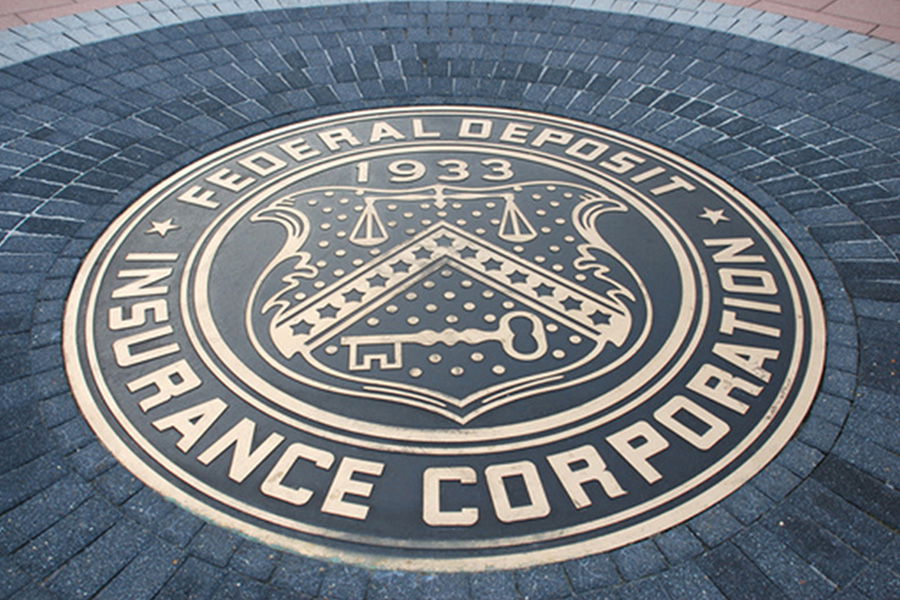FDIC insurance protects your money if your bank fails—up to $250,000 per depositor, per insured bank. It’s automatic, free, and built into every qualifying account.
Most checking, savings, and CD accounts are covered, but some products—like investments and crypto—aren’t. The rules can also get confusing if you have large balances or multiple accounts.

This guide breaks down what’s protected, what’s not, and how to make sure your deposits stay safe.
What FDIC Insurance Really Means
An FDIC insured account is a deposit account—like checking, savings, or a certificate of deposit—held at a bank backed by the Federal Deposit Insurance Corporation. If the bank fails, the FDIC covers your deposits up to $250,000.
You don’t need to sign up or pay extra for this protection. As long as your bank is FDIC-insured and your total balance stays within the coverage limit, your money is automatically protected.
How FDIC Insurance Protects Your Money
If your bank goes under, the FDIC steps in and reimburses you—up to $250,000 per depositor, per insured bank, for each account category. That includes individual, joint, trust, and retirement accounts.
The money comes from the FDIC’s deposit insurance fund, which is funded by fees paid by member banks—not taxpayers. As long as your accounts fall within the coverage rules, your money is safe, no matter what happens to your bank.
Accounts Covered by FDIC Insurance
Here are the different types of accounts that FDIC insures:
- Checking accounts: A checking account let you handle daily financial transactions with ease. Whether you’re writing checks, paying bills, or accessing your funds through ATMs or debit cards, a checking account with FDIC coverage offers peace of mind for your cash, insured up to the legal limit.
- Savings accounts: Short-term savings goals, rainy day funds, and earning a bit of interest – a savings account offers all this and more. Though the interest rates may be lower compared to other options, you can be assured that your deposits are secure at an FDIC-insured bank.
- Money market deposit accounts: Higher interest rates, with restrictions. That’s the deal with a money market account. To enjoy the benefits of these accounts, you usually need to make a higher initial deposit and observe certain transaction limits. But with FDIC coverage, you can sleep soundly knowing your savings are protected.
- Certificates of deposit (CDs): For those who can afford to lock up their money for a set period of time, a CD offers a tantalizing option with their fixed interest rates. However, you won’t be able to access your funds until the CD matures. Nevertheless, you can feel confident about your FDIC-insured deposits.
Money orders, cashier’s checks, loan disbursement checks, and other bank-issued items are also FDIC-insured.
What FDIC Doesn’t Cover
FDIC insurance only applies to deposit accounts at insured banks. It doesn’t protect every financial product or service. Here’s what falls outside its coverage:
- Investments: Stocks, bonds, mutual funds, and annuities are not insured—even if you buy them through a bank.
- Crypto assets: Cryptocurrencies are not considered deposits and are not covered.
- Insurance products: Life insurance policies and similar contracts aren’t protected by the FDIC.
- Safe deposit boxes: The FDIC doesn’t cover anything stored in a safe deposit box.
- Foreign banks: Accounts held at banks outside the U.S. aren’t eligible for coverage.
Business accounts are eligible, as long as they’re standard deposit accounts held at an FDIC-insured bank and fall within the coverage limits.
FDIC Insurance Limits and How to Maximize Coverage
For most deposit accounts, including checking, savings, and money market accounts, FDIC insurance coverage is capped at a generous $250,000 per depositor, per insured bank, for each account ownership category.
However, if you have multiple accounts at the same insured bank, the coverage may be aggregated. So, even if you have multiple accounts, the total coverage for all your accounts combined is still limited to $250,000.
On the bright side, there are higher coverage limits available for specific types of accounts, such as retirement accounts and trust accounts. Remember to regularly review your accounts and their coverage levels, and consider splitting large deposits across multiple insured banks if needed.
Final Thoughts
FDIC insurance is one of the simplest ways to protect your cash. As long as you bank with an FDIC-insured institution and stay within the coverage limits, your deposits are safe—even if the bank fails.
It’s worth checking how your accounts are structured, especially if you hold large balances or use multiple ownership categories. A few small moves could give you extra peace of mind without changing how you bank.
Frequently Asked Questions
Can I get more than $250,000 in FDIC coverage?
Yes, it’s possible by spreading your money across different ownership categories or multiple FDIC-insured banks. For example, an individual account and a joint account at the same bank are insured separately. You can also open accounts at different banks to increase your total protected balance.
How do I know if my bank is FDIC insured?
Most U.S. banks are FDIC members, but it’s smart to double-check. Look for the FDIC logo at the bank or on its website, or use the FDIC’s “BankFind” tool to confirm coverage.
Are online banks covered by the FDIC?
Yes, as long as the online bank is FDIC-insured. Many online-only banks partner with traditional banks or operate under a charter that qualifies for coverage. Always check their FDIC status before opening an account.
Does FDIC insurance cover fraud or stolen funds?
Not directly. FDIC insurance only protects against bank failure—not identity theft or unauthorized transactions. However, most banks offer separate fraud protection policies for those situations.
Are credit unions FDIC insured?
Credit unions are not insured by the Federal Deposit Insurance Corporation (FDIC). Instead, they are insured by the National Credit Union Administration (NCUA). The NCUA provides the same level of protection as the FDIC, ensuring that accounts held at credit unions are just as safe and secure.
